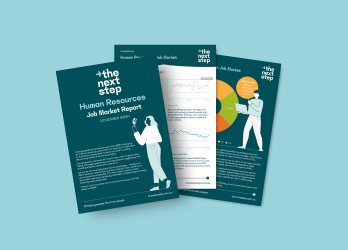Resilience & adaptability: How to show you've got what it takes

Change. It’s happening faster than ever before and many businesses struggle to keep up. HR professionals need to think on their feet and pivot at increasing speeds.
Organisations want HR leaders who are resilient and can provide direction during times of ambiguity and change. Recent times have shown that the ability to work in a changing environment is a highly sought-after skill for most, if not all HR roles.
Read on to learn how you can develop and promote your adaptability and in doing so, make yourself a desirable HR leader of the future.
Why is adaptability important for HR?
All workplaces have stakeholders with competing agendas at some time or other, regardless of organisation size, industry, culture or stage in life cycle.
Start-ups or businesses that expand quickly often require Human Resources to grow and adapt with them, responding to changing needs at pace. Whether it be about organisational structure, roles, recruitment, policies and processes. The list goes on.
Organisations that grow through acquisitions will often inherit multiple systems, processes and subcultures that inevitably lead to layers of complexity and ambiguity. This makes it difficult to work towards business and people objectives.
Businesses like these need HR leaders with the ability to see through the fog, untangle the mess and provide clear, streamlined way forward.
The ability to work within a changing environment is essential for success in all these examples.
Demonstrating HR experience with change
When preparing your resume include references to ‘Greenfield’ or ‘set up’ situations you have been involved with. Keywords to highlight include ‘implement’, ‘design’, ‘streamline’ and ‘ways of working'. Share your experience with creating and implementing new systems and processes.
Demonstrate your involvement in mergers, acquisitions or change projects. Highlights would include how you helped the business or HR team in the transformation, build resilience and provide clarity.
At interviews, resist the urge to dive straight into a detailed description of your functional responsibilities. Take a moment to provide your interviewer with some context on the organisation at the time you joined them. For example, was the industry undergoing significant changes that impacted your company or a merger and acquisition?
Think about how these circumstances required resilience and adaptability to overcome challenges. How did you help the business or stakeholders move forward when the path wasn’t established or clear? Give concrete examples to back this up.
Gaining experience with change
What if you don’t have a great deal of experience with change? Don’t worry. There are lots of things you can do to fill this capability gap.
Put your hand up for a project. Step outside your comfort zone in order to grow. System and process implementations are a great example. Might not sound as sexy as that culture or EVP project you had your eye on, but they can be a game changer for the business. It’s also not just about processes, it’s about taking people on a journey, managing different stakeholders and understanding the nuances of leading people through change.
If these sorts of projects aren’t available in your current role you consider taking a change management methodology course or moving to a different company to gain new experience. Sometimes a strategic side-step will eventually help you climb up the career ladder.
How we can help
If you are adaptable and have experience working in a changing environment you may well be ready for a change yourself. At The Next Step, we can provide expert advice about career progression and support you in taking a ‘step-up role’.
Caroline Diek is a principal consultant at The Next Step, NSW. She provides high quality HR recruitment services to some of Australia’s leading organisations. HR professionals working with Caroline receive a wholistic view of the organisation they are meeting with and are well-prepared for interviews. She is considered to be a trusted partner and advocate.
Author: Caroline Diek Date published : 06/08/2021



